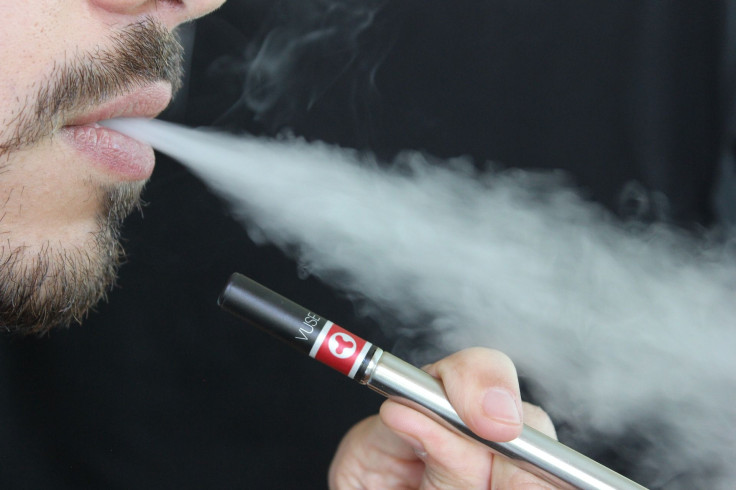How Harmful Is Vaping? Wisconsin Teens Face Lung Injuries Allegedly Caused By E-Cigarettes

Eight teenagers in Wisconsin this month have been hospitalized with lung injuries that doctors believe are likely caused by vaping. All of the teens — from Milwaukee, Waukesha and Winnebago counties — have had a recent history of e-cigarette use.
Medical imaging showed the teens having lung damage, with each complaining of symptoms such as shortness of breath, fatigue, coughing and chest pain. They are still in recovery.
A pediatric pulmonologist who treated the teens said they are "not breathing well" and "look very sick."
The hospitalizations follow congressional hearings this week where lawmakers accused San Francisco-based e-cigarette company Juul of discretely advertising its e-cigarettes to underage consumers.
E-cigarettes are classified as tobacco products, which means it is illegal to sell to individuals under the age of 18.
Sen. Mitch McConnell, R-Ky., introduced a bill in Congress earlier this year asking for the age to buy tobacco products and vaping devices be raised from 18 to 21.
Vaping is when an individual uses a device, known as a vaporizer, that can vaporize substances for inhalation. One of the most popular vaporizers are e-cigarettes, which can deliver nicotine without the smoke of a traditional cigarette.
Although vaping and using e-cigarettes is considered less harmful than smoking, the Johns Hopkins Ciccarone Center for the Prevention of Heart Disease said that nicotine, which is used in e-cigarettes and other vaporizers, still raises the risk of heart attack and causes addiction.
A study of more than 28,171 U.S. adults found that those who vape are more likely to wheeze, putting them more at risk for respiratory disease.
© Copyright IBTimes 2025. All rights reserved.





















